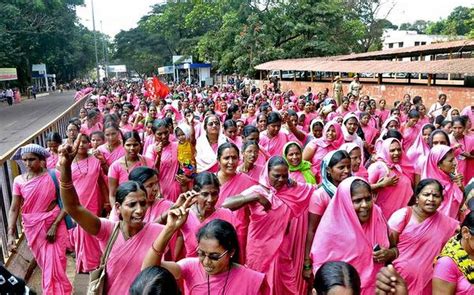The role of an Accredited Social Health Activist (ASHA) is pivotal in the context of community health, particularly in developing countries where access to healthcare services can be limited. ASHAs are community health workers instituted by the government of India's Ministry of Health and Family Welfare (MoHFW) as part of the National Rural Health Mission (NRHM) in 2005. Their primary objective is to act as an interface between the community and the public health system, aiming to improve the health status of rural populations, especially women and children.
Role and Responsibilities of ASHAs

ASHAs are tasked with a wide range of responsibilities, including motivating women to give birth in hospitals, bringing children to immunization sessions, encouraging family planning (such as sterilization, condom use, and other spacing methods), treating basic illness and injury with first aid, keeping demographic records, and improving village sanitation. They are also expected to counsel and escort patients to health facilities when necessary. The role of an ASHA is multifaceted and critical in promoting health, nutrition, and sanitation within their communities.
Selection and Training of ASHAs
ASHAs are selected from the village itself, and the selection criteria include being a resident of the village, being between 25 and 45 years of age, having a minimum of 8th grade education, and being a member of a Below Poverty Line (BPL) family or from a marginalized community. Once selected, ASHAs undergo a series of training sessions that equip them with the necessary knowledge and skills to perform their duties effectively. The training covers a broad spectrum of topics including maternal and child health, family planning, nutrition, disease prevention, and basic first aid.
| Training Component | Duration |
|---|---|
| Initial Training | 23 days |
| Refresher Training | 6-8 days |
| Ongoing Support and Supervision | Ongoing |

Impact of ASHAs

Studies have shown that the presence of ASHAs in rural areas has led to significant improvements in health outcomes. For instance, there has been an increase in institutional deliveries, improved immunization coverage, and a reduction in infant and maternal mortality rates. ASHAs have also played a crucial role in promoting family planning methods, leading to a decline in the total fertility rate. Furthermore, their efforts in improving sanitation and hygiene practices have contributed to a decrease in the incidence of water-borne diseases.
Challenges Faced by ASHAs
Despite their critical role, ASHAs face numerous challenges, including inadequate training, lack of support from the health system, insufficient incentives, and societal barriers. Many ASHAs have reported difficulties in accessing health facilities, shortage of medicines, and inadequate supervision. These challenges can hinder their ability to provide effective services, underscoring the need for continued support and strengthening of the ASHA program.
Key Points
- ASHAs are community health workers who play a crucial role in improving the health status of rural populations.
- Their responsibilities include promoting institutional deliveries, immunization, family planning, and sanitation.
- ASHAs undergo a series of training sessions to equip them with the necessary knowledge and skills.
- The impact of ASHAs has been significant, with improvements in health outcomes such as increased institutional deliveries and reduced infant and maternal mortality rates.
- ASHAs face challenges including inadequate training, lack of support, and societal barriers, which need to be addressed to ensure the success of the program.
In conclusion, the role of ASHAs in promoting community health is indispensable. Their efforts have contributed significantly to improving health outcomes in rural areas. However, it is essential to address the challenges they face to ensure the continued success and effectiveness of the ASHA program. By providing adequate training, support, and incentives, ASHAs can be empowered to make a lasting impact on the health and well-being of their communities.
What is the primary role of an ASHA?
+The primary role of an ASHA is to act as an interface between the community and the public health system, aiming to improve the health status of rural populations, especially women and children.
What kind of training do ASHAs receive?
+ASHAs undergo a series of training sessions that cover a broad spectrum of topics including maternal and child health, family planning, nutrition, disease prevention, and basic first aid.
What are some of the challenges faced by ASHAs?
+ASHAs face numerous challenges, including inadequate training, lack of support from the health system, insufficient incentives, and societal barriers.
Meta description: Learn about the critical role of Accredited Social Health Activists (ASHAs) in improving community health in rural areas, their responsibilities, training, impact, and challenges.


